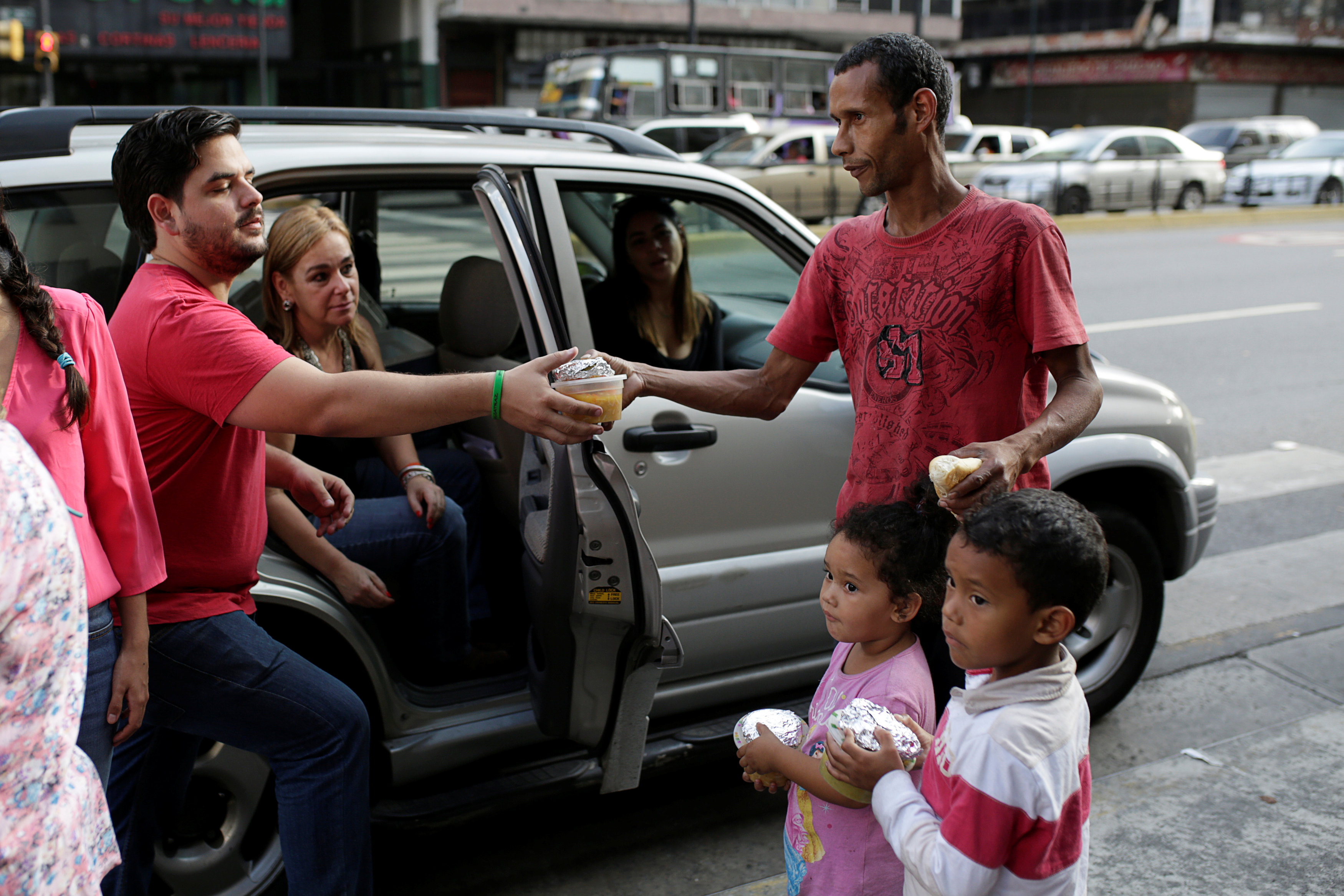
By Isabel Coles
QAYYARA, Iraq (Reuters) – The babies cry with hunger but are so severely malnourished that doctors treating them at a hospital in Iraq would make their condition worse if they fed them enough to stop the pangs.
Many of the starving infants are from Mosul, where war between Islamic State militants and Iraqi forces is taking a heavy toll on several hundred thousand civilians trapped inside the city.
A new, specialist ward was opened recently to deal with the growing number of children from Mosul showing signs of malnutrition as the conflict grinds on -– most of them less than six-months-old.
That means they were born around the time Iraqi forces severed Islamic State’s last major supply route from Mosul to Syria, besieging the militants inside the city, but also creating acute shortages of food.
“Normally nutritional crises are much more common in Africa and not in this kind of country,” said pediatrician Rosanna Meneghetti at the hospital, which is run by aid group Medecins Sans Frontieres (MSF) in Qayyara, about 60 km (40 miles) south of Mosul. “We did not anticipate this”.
So far, the number of cases recorded is below the level considered critical but it nonetheless highlights the hardship faced by civilians who are effectively being held hostage by Islamic State.
Iraqi forces backed by a U.S.-led coalition have retaken most of the city but are struggling to dislodge the militants from several districts in the west, including the Old City.
Residents who have managed to escape say there is almost nothing to eat but flour mixed with water and boiled wheat grain.
What little food remains is too expensive for most residents to afford, or kept for Islamic State members and their supporters.
FORMULA MILK SHORTAGE
In the ward, a team of doctors monitors the babies’ progress in grams, feeding them a special peanut-based paste that will gradually accustom them to eating and increase their weight.
On one bed lies a six-month-old boy weighing 2.4 kg – less than half the median weight for an infant of that age.
The diminutive patients are also treated for other diseases associated with malnutrition, which weakens the immune system, making them even more vulnerable.
“It’s a new thing in Iraq,” said MSF project coordinator Isabelle Legall. “Most of the (Iraqi) doctors have never seen it (malnutrition)”.
Part of the problem, Legall said, is a lack of tradition of breast-feeding among Iraqi mothers, who usually raise their babies on formula milk, which is now almost impossible to come by in Mosul.
Even if they want to breastfeed, many mothers find it difficult due to the physical and emotional strain of living in a warzone: “The mother is very stressed and can’t find much food herself so cannot produce so much milk,” Meneghetti said.
One of the mothers from Mosul told the doctors she had no option but to feed her baby sugar dissolved in water, yogurt, or a mixture of flour and water.
“All of this is because of Daesh (Islamic State),” said another mother, keeping vigil over her emaciated baby.
Some of the babies come from villages that were retaken from Islamic State months ago, pointing to a wider trend of food insecurity.
TWO PATIENTS TO A BED
On average, more than half the patients seen in the emergency room of the MSF hospital are under the age of 15, partly because there is a shortage of pediatricians in the area, so many children are referred there.
Signs on the doors of the portacabins that house different wards prohibit visitors from entering with weapons.
The pediatric ward is so full there are two patients to each bed, and most of the women’s wing is taken up by children recovering from war injuries such as broken limbs, burns and shrapnel.
Many babies are brought to the hospital with respiratory problems such as bronchiolitis and pneumonia -– most of them from camps for the displaced, where cramped conditions enable viruses to spread.
Two children buried under blankets are suffering from birth asphyxia which occurs when a baby’s brain and other organs do not get enough oxygen before, during or immediately after being born.
Meneghetti said their mothers had probably needed a surgical birth but were unable to reach a hospital so delivered at home and experienced complications.
Lying listless on another bed is a boy who was wounded by shrapnel when his father picked up a box of explosives, intending to move the danger away. It blew up in his hands, wounding them both along with several other family members.
The expression on eight-year-old Dua Nawaf’s face is haunting.
The girl suffered burns to the head and hands in an airstrike by the U.S.-led coalition that killed more than 100 people in the Mosul Jadida district last month, including both her parents.
“The family told me this morning that she (Dua) had some problems, especially in the night, so we are organising a mental health (assessment) for her,” Meneghetti said, reaching into her pocket for a balloon, which she inflated and gave to the girl.
Only the faintest hint of a smile appeared on Dua’s face.
(Editing by Angus MacSwan)









